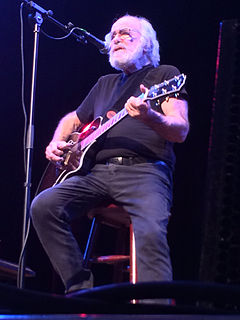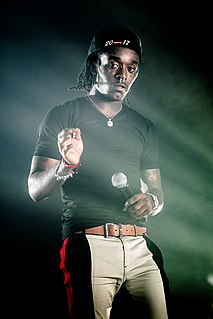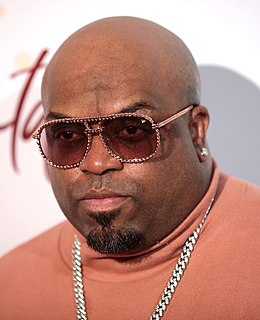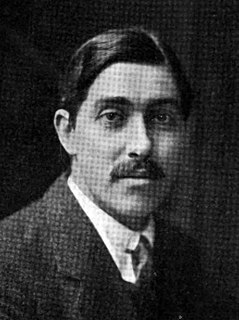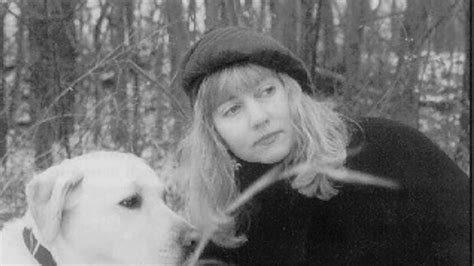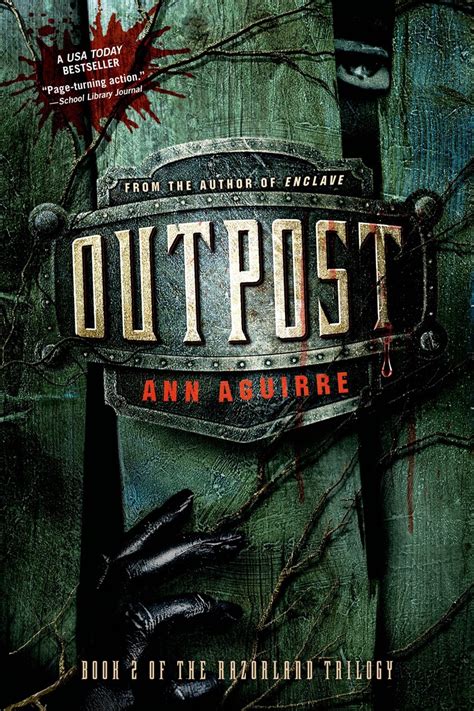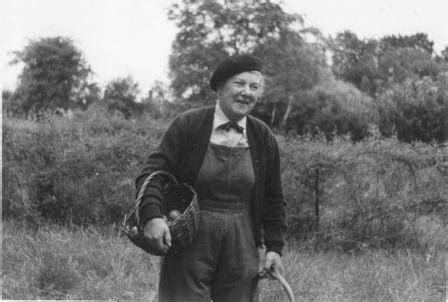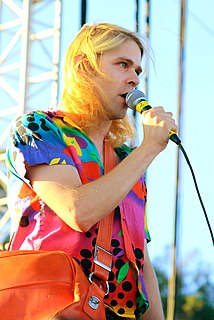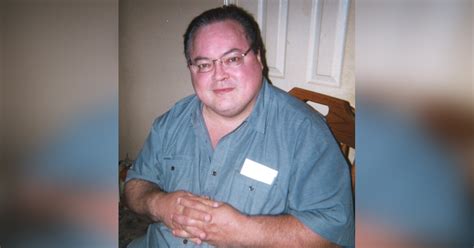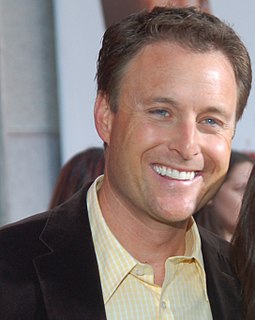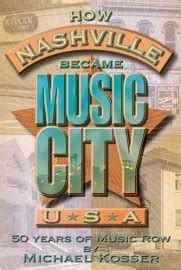Top 429 Rhyme Quotes & Sayings - Page 7
Explore popular Rhyme quotes.
Last updated on April 19, 2025.
In my own writing, I've mostly abandoned end-rhyme, but wordplay is still a huge part of my process. I've written a series of mermaid poems in the last few years. The first one was called "The Straightforward Mermaid" which arose from my delight in that word combination. After that, I decided that future mermaid poems would have to be words ending in "d" or "t," which led to "The Deadbeat Mermaid," "The Morbid Mermaid" and so forth . . .
I'm not an advocate of true rhymes, I don't think. I think that everyone who writes musical theater needs to know how to do true rhymes, because that's the tradition of it, but I do think that in order for the art form to grow, it's important to not let tradition get in the way of innovation. There's all kinds of reasons not to use true rhyme in a lyric, like with off-color humor.
When I go onstage, I don't know what I'm going to say. I don't know what's going to come out of my mouth. It's one of those questions where any and everything is possible. I literally could be talking about somebody I was hanging out with two seconds ago or something from the news. Literally, there's really no rhyme or reason for it. I want to be free flowing like that.
Every song falls short of the glory of what a song could be. That's why the urge is there to start again and yet again. Often it's the fault of rhyme. I've discovered a hundred times that there just aren't enough rhymes to say what I wanted to say, so I said something else instead. Sometimes it was a better thing, but the thing I meant to say went unsaid. So there's an opening for another song.
I sense the world might be more dreamlike, metaphorical, and poetic than we currently believe--but just as irrational as sympathetic magic when looked at in a typically scientific way. I wouldn't be surprised if poetry--poetry in the broadest sense, in the sense of a world filled with metaphor, rhyme, and recurring patterns, shapes, and designs--is how the world works. The world isn't logical, it's a song.
The nursery rhyme ends when a spider comes along and frightens Miss Muffet straight off her tuffet. I have wondered about what kind of lesson this is for a young girl. If you're eating your curds and whey and a spider comes along, I don't think there's anything wrong with picking up a newspaper, smashing it, and going back to your breakfast.
Being in Marin City was like a small town so it taught me to be more [straightforward] with my style. Instead of of being so metaphorical with the rhyme, I was encouraged to go straight at it and hit it dead on and not waste time trying to cover thingsIn Marin City it seemed like things were real country. Everything was straightforward. Poverty was straightforward.
I feel like I'm really accomplishing something with harmony and melody. Ultimately, again, I'm not a singer, some people can sing with an "I" or an "a," some people can sing and they can sang. I think I can "sang" more than anything. I'm not a formal singer and I'm an MC, but it's secondary to the second nature of just melody. You know but ultimately I'm a writer and I do soul music. Whether it's in song form or rhyme scheme, it's soul.
Confined to common life thy numbers flow,
And neither soar too high nor sink too low;
There strength and ease in graceful union meet,
Though polished, subtle, and though poignant, sweet;
Yet powerful to abash the from of crime
And crimson error's cheek with sportive rhyme.
[Lat., Verba togae sequeris, junctura callidus acri,
Ore teres modico, pallentes radere mores
Doctus, et ingenuo culpam defigere ludo.]
The rhyme always knows better than you, and leads you to places where you wouldn't otherwise have gotten to and that is absolutely the case. Leading off from formal poetry, there is something about when you pay attention to form and you allow it to have its own laws and you listen to those laws you really do end up in places you wouldn't otherwise go. Which isn't to say that I believe in following the rules when I write. I don't. Each of the forms in my books feels to me new.
One of the interesting things about the history of poetry in the 16th, 17th, and 18th centuries is that people who read liked getting their information in rhyme just as much as in prose. The genre that we would think of as nonfiction often was written in verse in forms like the Georgic when people thought that one of the tasks of poetry was conveying arguments and information in a pleasant way.
I prefer formal techniques, and use sonnets and rhyme, any manner of scheme to give a shape and order-of feeling as well as argument-to a poem. But all my life, I've also been a person who's made his bed in the morning and picks up the bath mat. That's what I mean by temperament. Whether genetic or acquired, I have a disposition to arrangements. One is born with this, as if with blue eyes or a weak heart. Do you think Allen Ginsberg ever put the cap back on his toothpaste?
The reason why you do history, and particularly why you do war, is that you want to make sure that in the next war, some lessons were learned. There's a saying: "History doesn't repeat itself, but it does rhyme." Or Ecclesiastes: "What has been will be again. What has been done will be done again." Human nature always superimposes itself - its strength and its frailty over the rush of chaos of ongoing events - and we can perceive patterns and themes and motifs.
It is a shallow criticism that would define poetry as confined to literary productions in rhyme and meter rhythm. The written poem is only poetry talking, and the statue, the picture, and the musical composition are poetry acting. Milton and Goethe, at their desks, were not more truly poets than Phidias with his chisel, Raphael at his easel, or deaf Beethoven bending over his piano, inventing and producing strains, which he himself could never hope to hear.
The public, as a whole, does not demand or appreciate the pure expression of beauty. Its cultured members expect to find in poetry, if anything, repose from material and nervous anxiety; an apt or chiselled phrase strokes the appetites and tickles the imagination. The more general public merely enjoys its platitudes and truisms jerked on to the understanding in line and rhyme; truth put into metre sounds overwhelmingly true.
A lot of people think they can write poetry, and many do, because they can figure out how to line up the words or make certain sounds rhyme or just imitate the other poets they've read. But this boy, he's the real poet, because when he tries to put on paper what he's seen with his heart, he will believe deep down that there are no good words for it, no words can do it, and at that moment he will have begun to write poetry.
The poetical tendency of the present and of the preceding century has been divided in a manner singularly curious. One loud and conspicuous faction of bards, giving way to the corrupt influences of a decaying general culture, seems to have abandoned all the properties of versification and reason in its mad scramble after sensational novelty; whilst the other and quieter school constituting a more logical evolution from the poesy of the Georgian period, demands an accuracy of rhyme and metre unknown even to the polished artists of the age of Pope.
The process for writing a picture book is completely different from the process of writing a chapter book or novel. For one thing, most of my picture books rhyme. Also, when I write a picture book I'm always thinking about the role the pictures will play in the telling of the story. It can take me several months to write a picture book, but it takes me several years to write a novel.
Now it’s high watermark and floodtide in the heart and time to go. The sea-nymphs in the spray will be the chorus now. What’s left to say? Suspect too much sweet-talk but never close your mind. It was a fortunate wind that blew me here. I leave half-ready to believe that a crippled trust might walk and the half-true rhyme is love.
We have our little theory on all human and divine things. Poetry, the workings of genius itself, which, in all times, with one or another meaning, has been called Inspiration, and held to be mysterious and inscrutable, is no longer without its scientific exposition. The building of the lofty rhyme is like any other masonry or bricklaying: we have theories of its rise, height, decline and fall -- which latter, it would seem, is now near, among all people.
I have heard what poets write about women. They rhyme and rhapsodize and lie. I have watched sailors on the shore stare mutely at the slow-rolling swell of the sea. I have watched old soldiers with hearts like leather grow teary-eyed at their king's colors stretched against the wind. Listen to me: these men know nothing of love. You will not find it in the words of poets or the longing eyes of sailors. If you want to know of love, look to a trouper's hands as he makes his music. A trouper knows.
And remember, also," added the Princess of Sweet Rhyme, "that many places you would like to see are just off the map and many things you want to know are just out of sight or a little beyond your reach. But someday you'll reach them all, for what you learn today, for no reason at all, will help you discover all the wonderful secrets of tomorrow.
I can remember being eight years old and having infinite possibilities. But life ends up being so much less that we thought it would be when we were kids, with relationships that are so empty and stupid and brutal. If you don't find a way to break the chain and change in some way, then you wind up, as the rhyme goes: a murder of one, for sorrow.
Yeah, except that when I write pop songs I have pretty strict constraints that I impose on myself. 69 Love Songs is a constraint. That the titles have to begin with "I'"s is a relatively strict constraint. Charm of the Highway Strip is all travel songs. And I am free to change the plot slightly to accommodate something that happens to rhyme conveniently.
A nursery rhyme shapes your bones and nerves, and it shapes your mind. They are powerful, nursery rhymes, and immensely old, and not toys, even though they are for children." "But they make no sense!" Summer protested "Ah, well," said Ben. "Sometimes sense hides behind walls. You must find a window and stick your head right in before you can see it.
What's bad for the culture is wack rappers that get held in high regard like they're some great thing because it's the flavor of the month, but everybody knows they can't rap. I don't think it's hard, even for somebody who's not hip-hop, to know that that's not good. When you put them up against somebody that can really rhyme, you go, "Okay, I get it. This is what it should sound like."
I’m not a woman you bring home to Mother, pick out china patterns with, or Mary forefend, breed. I’ve seen a chunk of the universe, true, but there’s still so much more to see. I doubt I’ll ever cure this wanderlust, and I’m content with dedicating my life to failing to sate it... He’s never going to sit at my feet and write me poems, which is good because I hate poetry, except dirty ones that rhyme.
Faeries are fallen angels," said Dorothea, "cast down out of heaven for their pride." "That's the legend," Jace said. "It's also said that they're the offspring of demons and angels, which always seemed more likely to me. Good and evil, mixing together. Faeries are as beautiful as angels are supposed to be, but they have a lot of mischief and cruelty in them. And you'll notice most of them avoid midday sunlight—" "For the devil has no power," said Dorothea softly, as if she were reciting an old rhyme, "except in the dark.
Every limited mind demands a certain freedom of expression, and the man who cannot express himself satisfactorily without the stimulation derived from the spirited mode of two centuries ago should certainly be permitted to follow without undue restraint a practice so harmless, so free from essential error, and so sanctioned by precedent, as that of employing in his poetical compositions the smooth and inoffensive allowable rhyme.
I still don't know how to express the really delicate personal stuff. People think that Plastic Ono is very personal, but there are some subtleties of emotions which I cannot seem to express in pop music, and it frustrates me. Maybe that's why I still search for other ways of expressing myself. Song writing is a limiting experience in some ways - writing down words that have to rhyme.
If I hadn't gone on the road with Patti LaBelle, then I wouldn't have brought Jay-Z on the road with me. When I saw her leave the stage to change clothes and allow the background singers to keep the show going, I said, 'That's something I wanna do.' So in the middle of my show, I would leave the stage and Jay-Z would come out and rhyme.
Simon remembered a rhyme his mother used to recite to him, about magpies. You were supposed to count them and say: one for sorrow, two for mirth, three for a wedding, four for a birth, five for silver, six for gold, seven for a secret that's never been told. "Right," simon said. He had already lost count of the numbers of birds there were. Seven, he guessed. A secret that's never been told. Whatever that was.
Ring around the rosie. A pocket full of posie. Ashes ashes, we all fall down. Some people say that this poem is about the Black Death, the fourteenth-century plague that killed 100-million people... Sadly, though, most experts think this is nonsense... How can I be so sure about this rhyme when all the experts disagree? Because I ate the kid who made it up.
Hear the sledges with the bells, Silver bells! What a world of merriment their melody foretells! How they tinkle, tinkle, tinkle, In the icy air of night, While the stars that oversprinkle All the Heavens seem to twinkle With a crystalline delight: Keeping time, time, time, In a sort of Runic rhyme To the tintinnabulation that so musically wells From the bells, bells, bells, bells, Bells, bells, bells-- From the jingling and the tingling of the bells.
Vain vision! when the changing world each day Sees some such lordly pleasance pass away; When the mere stripling knows my symbols all Worn tokes, heaven hypothetical, Nature indifferent, and the dreams of men Figments of longing which we must condemn. Yet keep these plants, O Man! a kinder time May yet be moved by them to better rhyme, Or moved, like me, to place his pleasure low, On the firm Earth, whence Men and Blossoms grow.
It's your worst sin saving your f***ing life; It's the devil's knife carving holes into your soul so angels have a way to make their way inside; Life doesn't rhyme. Still, life is poetry, not math. The whole world's a stage, but the stage is a meditation mat. You tilt your head back; you breathe. when your heart is broken, you plant seeds in the cracks and you pray for rain.
Kat and Kropp get in an argument over the war as they rest from an hour’s worth of drill (occasioned by Tjaden’s not saluting a major properly). Kat believes the war would be over if leaders gave all the participants “the same grub and the same pay,” as he says in a rhyme. Kropp believes the leaders of each country should fight each other in an arena to settle the war; the “wrong” people currently do the fighting.
Everyone had some defect, or body or of mind: he thought of all the people he had known (the whole world was like a sick house and there was no rhyme or reason in it), he saw a long procession, deformed in body, warped in mind, some with illness of the flesh, weak hearts or weak lungs, and some with illness of the spirit, languor of will, or craving for liquor. At that moment he felt a holy compassion for them all. …The words of the dying God crossed his memory: Forgive them, for they know not what they do.
I'll quit eating meat when you get a cow out here to beat me at a poetry slam. Only so many words rhyme with 'Mooo.' I mean, yes, we're supposed to be better stewards; yes, we're supposed to take care of the earth; yes, we're supposed to honor the sacrifices made by the animals; yes yes yes yes yes, but dammit, we're in charge, and you know why? It's because of these [holding out thumbs]...Maybe you think that carrots are less important than cows. I think they're equal, especially in a sauce.
Darkling I listen; and, for many a time I have been half in love with easeful Death, Called him soft names in many a muse' d rhyme, To take into the air my quiet breath; Now more than ever seems it rich to die, To cease upon the midnight with no pain, While thou art pouring forth thy soul abroad In such an ecstasy!
How else do you think life happens? A series of coincidences and occurrences have to happen somehow. Our lives all crash and collide and you think there's no reason or rhyme to it? If there wasn't any reason for it all, what would be the point? Why do you think anything happens at all? There is an outcome, repercussions and occurrences to everybody you meet and everything you say.
By denying people's sense of visual beauty in painting and sculpture , melody in music , meter and rhyme in poetry , plot and narrative and character in fiction , the elite arts wrote off the vast majority of their audience . They purposely excluded people who approach art in part for pleasure and edification in favour of social one-upmanship and an ever-narrowing, in-crowd elite.
Who among us has not, in moments of ambition, dreamt of the miracle of a form of poetic prose, musical but without rhythm and rhyme, both supple and staccato enough to adapt itself to the lyrical movements of our souls, the undulating movements of our reveries, and the convulsive movements of our consciences? This obsessive ideal springs above all from frequent contact with enormous cities, from the junction of their innumerable connections.
As soon as you start to think of that thing that you want to convey or say, you can always just say it much better than you can actually rhyme it or stuff it into a song. It's very, very difficult to just kind of get your point across without going the back way. And you have to be good at that, to not think about things so hard. Let the pen take over, so that it's somebody else's job to dissect the lyrics and tell you what you're all about.
We spent a long time learning the craft of songwriting, Roger Glover and I, for a few years before we joined Deep Purple. You learn about the percussive value of words, and you learn about rhyme and meter. You learn that you can't transform a poem into a song lyric, mostly because the spoken shape of words is different than the sung shape of words. You wouldn't use the vowel 'U' or the vowel sound 'ooo' for a high note for example, its very difficult.
You will love again, people say. Give it time. Me with time running out. Day after day of the everyday. What they call real life, made of eighth-inch gauge. Newness strutting around as if it were significant. Irony, neatness and rhyme pretending to be poetry. I want to go back to that time after Michiko's death when I cried every day among the trees. To the real. To the magnitude of pain, of being that much alive.
We need a name for the new replicator, a noun that conveys the idea of a unit of cultural transmission, or a unit of imitation. 'Mimeme' comes from a suitable Greek root, but I want a monosyllable that sounds a bit like 'gene'. I hope my classicist friends will forgive me if I abbreviate mimeme to meme. If it is any consolation, it could alternatively be thought of as being related to 'memory', or to the French word même. It should be pronounced to rhyme with 'cream'.
I wrote poetry from the time I could write. That was the only way I could begin to express who I was but the poems didn't make sense to my teachers. They didn't rhyme. They were about the wind sounds, the planets' motions, never about who I was or how I felt. I didn't think I felt anything. I was this mind more than a body or a heart. My mind photographing the stars, hearing the wind.
Now it is you who everyone presumes is so fragile. Wounded. Scarred. Maybe they're right. Perhaps you are. A nursery rhyme comes into your head, and, like an egg, you allow yourself to topple onto your side, your legs still pulled hard against your torso. You lie like that a long while, watching the chrome shell of the tape measure sparkle until the sun moves.
Kids use words in ways that release hidden meanings, revel the history buried in sounds. They haven't forgotten that words can be more than signs, that words have magic, the power to be things, to point to themselves and materialize. With their back-formations, archaisms, their tendency to play the music in words--rhythm, rhyme, alliteration, repetition--children peel the skin from language. Words become incantatory. Open Sesame. Abracadabra. Perhaps a child will remember the word and will bring the walls tumbling down.
Rap isn't poetry, not least because it involves music and often other elements that aren't words. But the way poets in English use things like rhyme and meter, and the ways these conventions both do and don't apply to rap we try to lay out the rules for rap, in order to understand the techniques that artists like Jay-Z and Kanye employ.
I mean, people have created great shows, produced wonderful television, and nobody tunes in. For whatever reason, it just doesn't resonate with the masses. And vice versa, people have produced some really crappy television and mediocre stuff, and for some reason it hits. And there's no rhyme or reason.
Especially on Broadway, composers and lyricists fretted over their creations, obsessed over every rhyme, every critical chord or interval. The stakes were so high. On Broadway, people were watching and judging, especially newspaper critics who knew a thousand ways to slice and dice a songwriter for the entertainment of hundreds of thousands of faithful readers. There was no anonymity for the Broadway songwriter. Even the best could find themselves stripped naked the morning after by the tastemakers and their readers.
My thing was, I loved music. I played music: I played the saxophone. So the little bit of music knowhow I had, I tried to implement that in every thing I did, from my style, my cadence, the way I tried to pause and stagnate it; that all came from John Coltrane and listening to jazz albums. Trying to rhyme like a jazz player.
The government sent the Indians to Oklahoma. They had a treaty that said, 'You shall have this land as long as grass grows and water flows.' It was not only a good rhyme but looked like a good treaty, and it was till they struck oil. Then the Government took it away from us again. They said the treaty only refers to 'Water and Grass; it don't say anything about oil.'



